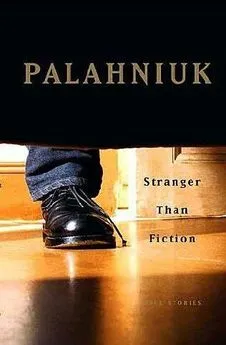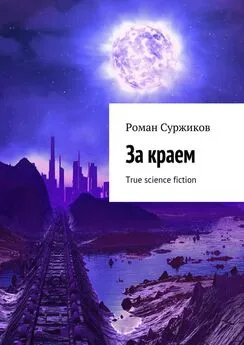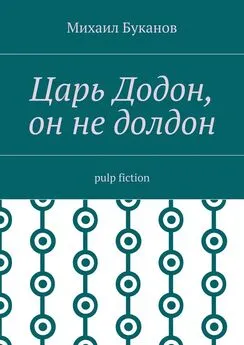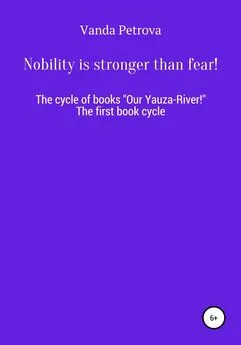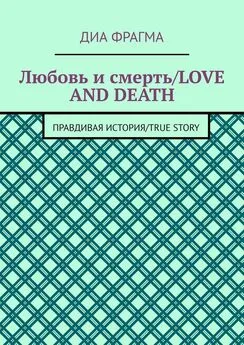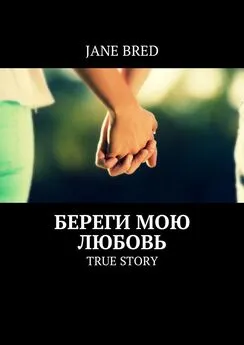Chuck Palahniuk - Stranger Than Fiction (True Stories)
- Название:Stranger Than Fiction (True Stories)
- Автор:
- Жанр:
- Издательство:неизвестно
- Год:неизвестен
- ISBN:нет данных
- Рейтинг:
- Избранное:Добавить в избранное
-
Отзывы:
-
Ваша оценка:
Chuck Palahniuk - Stranger Than Fiction (True Stories) краткое содержание
"Full of wonderful moments…Palahniuk's voice is so distinctive and intimate-he writes as though he is recounting a great story to a close friend." — Los Angeles Times
"Step into Palahniuk's dark worldview and watch for what crawls out. These stories are true to him and no one else." — The Oregonian
“One of the oddest and most oddly compelling collections to come along for some time.” —The Milwaukee Journal Sentinel
“In Chuck Palahniuk’s world, the ride is fast, often disturbing, and there is never any holding back.” —The New Orleans Times-Picayune
“Eccentric, idiosyncratic, and often entertaining.” —The Onion
"Priceless grace notes from an exceptionally droll and sharp-eyed observer." — The New York Times
“Rarely does a collection of essays continually resonate with a main theme and accumulate a weight that would lead you to call it a great book. . This is a pretty great book.” —The Seattle Times
"The book's lurid appeal rests largely on being let in on Palahniuk's secrets, the raw material for much of his fiction. . Acts that give spice to his novels are made more menacing when encountered in the real world." — Black Book
Stranger Than Fiction (True Stories) - читать онлайн бесплатно полную версию (весь текст целиком)
Интервал:
Закладка:
I'm not surprised that people like Memento. I'm surprised it didn't win every Academy Award and then destroy the entire consumer market for recordable compact discs, blank-page books, Dictaphones, DayTimers, and every other prop we use to keep track of our lives.
My filing system is my fetish. Before I left the Freightliner Corporation, I bought a wall of black steel four-drawer filing cabinets at the office-surplus price of five bucks each. Now, when the receipts pile up, the letters and contracts and whatnot, I close the blinds and put on a compact disc of rain sounds and file, file, file. I use hanging file folders and special color-coded plastic file labels. I am Guy Pearce without the low body fat and good looks. I'm organizing by date and nature of expense. I'm organizing story ideas and odd facts.
This summer, a woman in Palouse, Washington, told me how rapeseed can be grown as a food or a lubricant. There are two different varieties of the seed. Unfortunately, the lubricant type is poisonous. Because of this, every county in the nation must choose whether it will allow farmers to grow either the food or the lubricant variety of rapeseed. A few of the wrong type seeds in a county and people could die. She also told me how the people bankrolling the seeming-grassroots movement to tear down dams are really the American coal industry-not environmentalist fish-huggers and white-water rafters, but coal miners who resent hydroelectric power. She knows, she says, because she designs their websites.
Like the robotic birds, these are interesting facts, but what can I do with them?
I can file them. Someday, there will come a use for them. The way my father and grandfather lugged home lumber and wrecked cars, anything free or cheap with a potential future use, I now scribble down facts and figures and file them away for a future project.
Picture Andy Warhol's townhouse, crowded and stacked with kitsch, cookie jars and old magazines, and that's my mind. The files are an annex to my head.
Books are another annex. The books I write are my overflow retention system for stories I can no longer keep in my recent memory. The books I read are to gather facts for more stories. Right now I'm looking at a copy of the Phaedrus, a fictional conversation between Socrates and a young Athenian named Phaedrus.
Socrates is trying to convince the young man that speech is better than written communication, or any recorded communication including film. According to Socrates, the god Theuth in ancient Egypt invented numbers and calculation and gambling and geometry and astronomy… and Theuth invented writing. Then he presented his inventions to the great god-king Thamus, asking which of them should be presented to the Egyptian people.
Thamus ruled that writing was a pharmakon. Like the word «drug» it could be used for good or bad. It could cure or poison.
According to Thamus, writing would allow humans to extend their memories and share information. But, more important, writing would allow humans to rely too much on these external means of recording. Our own memories would wither and fail. Our notes and records would replace our minds.
Worse than that, written information can't teach, according to Thamus. You can't question it, and it can't defend itself when people misunderstand or misrepresent it. Written communication gives people what Thamus called "the false conceit of knowledge," a fake certainty that they understand something.
So, all those videotapes of your childhood, will they really give you a better understanding of yourself? Or will they just shore up whatever faulty memories you have? Can they replace your ability to sit down and ask your family questions? To learn from your grandparents.
If Thamus were here, I'd tell him that memory itself is a pharmakon.
Guy Pearce's happiness is based entirely on his past. He must complete something he can hardly remember. Something that he may even be misremembering because it's too painful.
Me and Guy, we're joined at the hip.
My two nights in Carson, California-looking at the credit-card receipt, I can remember them. Sort of. I was posing for a picture for GQ magazine. They'd originally wanted me to lie in a pile of rubber dildos, but we'd reached a compromise. It was the night of the Grammy Awards, so every decent hotel room in L.A. was taken. Another receipt shows it cost me seventy bucks in cab fare just to get to the photo shoot.
Now I remember.
The fashion stylist told me how her Chihuahua could suck its own penis. People loved her dog, until it ran to the center of every party and started honking its own wiener. This had cleared out more than a few parties at her house. The photographer told me horror stories about photographing Minnie Driver and Jennifer Lopez.
At a similar photo shoot for the Abercrombie & Fitch catalogue, the photographer tells me how his Chihuahua has "erectile retraction dysfunction." Whenever the little thing gets a boner, this guy-the Abercrombie photographer-has to reach in and make sure the dog's tiny foreskin isn't too tight.
Oh, now the memories come flooding back.
Now, day and night, foremost in my mind is the message: NEVER GET A CHIHUAHUA.
After the GQ photo shoot-where I wore expensive clothes and stood in a movie studio mock-up of an airplane bathroom-a movie producer took me to a beachfront hotel in Santa Monica. The hotel was big and expensive, with a posh bar that looked out at the sun setting over the ocean. It was an hour before the Grammys would start, and beautiful famous people were mingling in evening clothes, having dinner and drinks and calling for their limousines. The sunset, the people, me a little drunk and still wearing my GQ makeup, me so professionally art-directed, I'd died and gone to Hollywood heaven-until something dropped onto my plate.
A bobby pin.
I touched my hair and felt dozens of bobby pins, all of them worked halfway out of the hairsprayed mass of my hair. Here in front of music aristocracy, I was a drunken Olive Oyl, bristling with pins and dropping them every time I moved my head.
Funny, but without the receipts, I wouldn't have remembered any of it.
That's what I mean by pharmakon. Don't bother to write this down.
Consolation Prizes
Another waiter has just served me another free meal because I'm "that guy."
I'm the guy who wrote that book. The Fight Club book. Because there's a scene in the book where a loyal waiter, a member of the fight club cult, serves the narrator free food. Where, now in the movie, Edward Norton and Helena Bonham Carter get free food.
Then a magazine editor, another magazine editor, calls me, angry and ranting because he wants to send a writer to the underground fight club in his area.
"It's cool, man," he says from New York. "You can tell me where. We won't screw it up."
I tell him there's no such place. There's no secret society of clubs where guys bash each other and gripe about their empty lives, their hollow careers, their absent fathers. Fight clubs are make-believe. You can't go there. I made them up.
"Okay," he's saying. "Be that way. If you don't trust us, then to hell with you."
Another pack of letters arrive care of my publisher, from young men telling me they've gone to fight clubs in New Jersey and London and Spokane. Telling me about their fathers. In today's mail are wristwatches, lapel pins, and coffee mugs, prizes from hundreds of contests my father enters my siblings and me in every winter.
Parts of Fight Club have always been true. It's less a novel than an anthology of my friends' lives. I do have insomnia and wander with no sleep for weeks. Angry waiters I know mess with food. They shave their heads. My friend Alice makes soap. My friend Mike cuts single frames of smut into family features. Every guy I know feels let down by his father.
Even my father feels let down by his father.
But now, more and more, what little was fiction is becoming reality.
The night before I mailed the manuscript to an agent in 1995, when it was just a couple hundred sheets of paper, a friend joked that she wanted to meet Brad Pitt.
I joked that I wanted to leave my job as a technical writer who worked on diesel trucks all day.
Now those pages are a movie starring Pitt and Norton and Bonham Carter, directed by David Fincher. Now I'm unemployed.
Twentieth Century Fox let me bring some friends down to the movie shoot, and every morning we ate at the same café in Santa Monica. Every breakfast, we got the same waiter, Charlie, with his movie-star looks and thick hair, until the last morning we were in town. That morning, Charlie walked out of the kitchen with his head shaved. Charlie was in the movie.
My friends who'd been anarchist waiters with shaved heads were now being served eggs by a real waiter who was an actor who was playing a fake anarchist waiter with a shaved head.
It's that same feeling when you get between two mirrors in the barber shop and you can see your reflection of your reflection of your reflection going off into infinity…
Now waiters are refusing my money. Editors are grousing. Guys take me aside at bookstore events and beg to know where the local club meets. Women ask, quiet and serious, "Is there a club like this for women?"
A late-night fight club where you can tag some stranger in the crowd and then slug it out until one of you drops…?
These young women say, "Yeah, I really, really need to go to something like that."
A German friend of mine, Carston, learned to speak English in only funny outdated clichés. For him, every party was an "all-singing, all-dancing extravaganza."
Now Carston's clumsy pidgin words are coming out of Brad Pitt's mouth, forty feet high, in front of millions of people. My friend Jeff's trashed ghetto kitchen is re-created in a Hollywood soundstage. The night I went to save my friend Kevin from a Xanax overdose is now Brad rushing to save Helena.
Everything is funnier in retrospect, funnier and prettier and cooler. You can laugh at anything from far enough away.
The story is no longer my story. It's David Fincher's. The set for Edward Norton's yuppie condo is a re-creation of an apartment from David's past. Edward wrote and rewrote his own lines. Brad chipped his teeth and shaved his head. My boss thinks the story is about how he struggles to please his demanding boss. My father thought the story was about his absent father, my grandfather, who killed his wife and himself with a shotgun.
My father was four in 1943 when he hid under a bed as his parents fought and his twelve brothers and sisters ran into the woods. Then his mother was dead, and his father stomped around the house looking for him, calling for him, still carrying the shotgun.
My father remembers the boots stomping past the bed and the barrel of the shotgun trailing along near the floor. Then he remembers pouring buckets of sawdust on the bodies, to protect them from wasps and flies.
The book, and now the movie, is a product of all these people. And with everything added to it, the fight club story becomes stronger, cleaner, not just the record of one life, but of a generation. Not just of a generation, but of men.
The book is the product of Nora Ephron and Thom Jones and Mark Richard and Joan Didion, Amy Hempel and Bret Ellis and Denis Johnson because those are the people I read.
And now most of my old friends, Jeff and Carston and Alice are moved away, gone, married, dead, graduated, back in school, raising children. This summer, someone murdered my father in the mountains of Idaho and burned his body down to a few pounds of bone. The police say they have no real suspects. He was fifty-nine.
Читать дальшеИнтервал:
Закладка:
